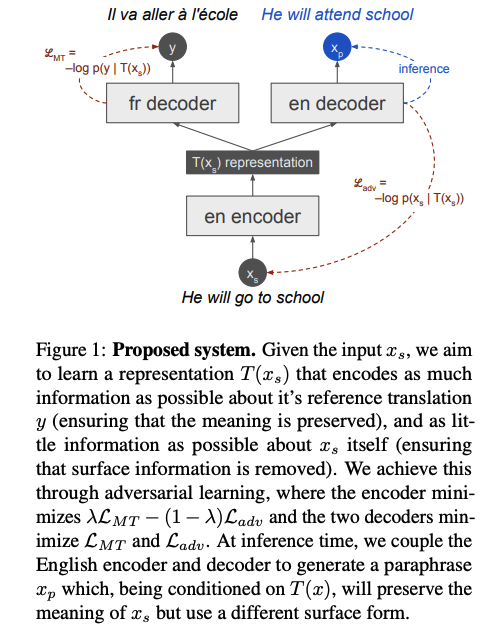This paper argued that round-trip MT for paraphrase training is flawed as it overweights paraphrases that have ambiguous translations. In response, they propose to use information bottleneck method to remove as much information from source text as much as possible while retaining the information needed to predict its translation. In this way, distributions of translation given source / paraphrase will match everywhere so the overweighting problem is solved.

Comments
- This paper demonstrates how an idea develop from intuition, to math formula and to implementation in detail.
- Math is solid and implementation is practical.
- It should be considered as best paper.
Rating
- 5: Transformative: This paper is likely to change our field. It should be considered for a best paper award.
- 4.5: Exciting: It changed my thinking on this topic. I would fight for it to be accepted.
- 4: Strong: I learned a lot from it. I would like to see it accepted.
- 3.5: Leaning positive: It can be accepted more or less in its current form. However, the work it describes is not particularly exciting and/or inspiring, so it will not be a big loss if people don’t see it in this conference.
- 3: Ambivalent: It has merits (e.g., it reports state-of-the-art results, the idea is nice), but there are key weaknesses (e.g., I didn’t learn much from it, evaluation is not convincing, it describes incremental work). I believe it can significantly benefit from another round of revision, but I won’t object to accepting it if my co-reviewers are willing to champion it.
- 2.5: Leaning negative: I am leaning towards rejection, but I can be persuaded if my co-reviewers think otherwise.
- 2: Mediocre: I would rather not see it in the conference.
- 1.5: Weak: I am pretty confident that it should be rejected.
- 1: Poor: I would fight to have it rejected.
0 voters
